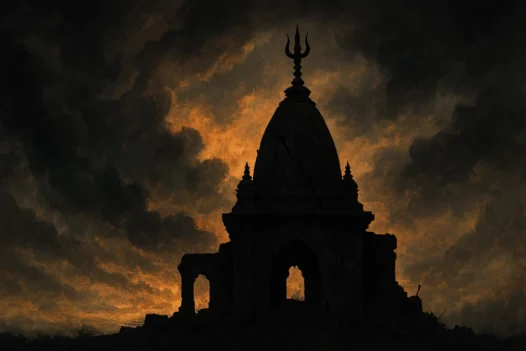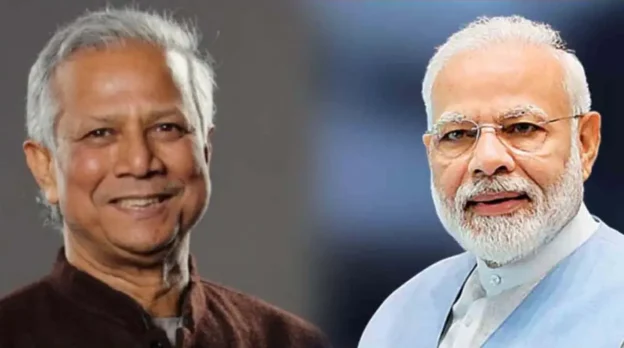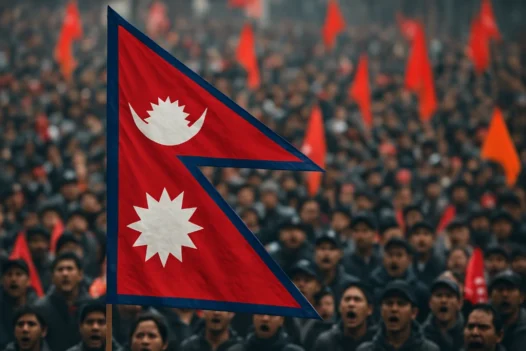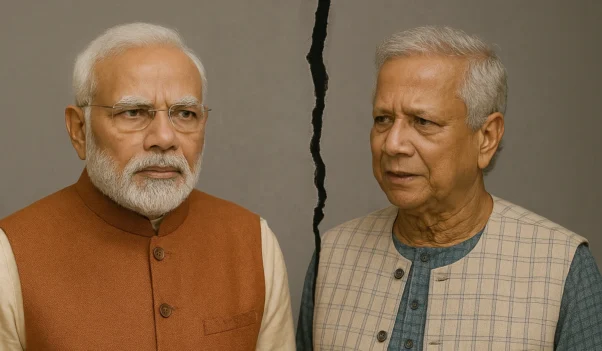For the past sixteen days, students at North Eastern Hill University (NEHU), one of the premier educational institutions in the country, have been protesting through an indefinite hunger strike demanding the resignation of Vice Chancellor (VC) Prof. Prabha Shankar Shukla. The strike, which began on November 5, was a culmination of simmering discontent over his administration, and it finally came to an end on November 20 after requests from the university’s teaching and non-teaching staff.
The decision to suspend the strike followed the submission of a report by an internal committee set up by the acting Vice Chancellor, Prof. Nirmalendu Saha, which highlighted “acts of omissions and commissions” by Shukla. The findings of the committee have been forwarded to the Union Ministry of Education and are expected to be reviewed by a two-member committee formed to investigate Shukla’s tenure. Additionally, the decision to end the strike was driven by health concerns regarding the students’ well-being and appeals from various quarters, including interim VC Saha, faculty members, and even State Chief Minister Conrad Sangma, who raised the issue with Union Education Minister Dharmendra Pradhan.
For the students, the agitation was not just a moment of protest but an urgent call for change in an institution that once stood as a symbol of academic excellence in the region.
The grievances against Shukla are multifaceted. From arbitrary appointments of officials, including Registrar Col. Omkar Singh (Retd.) and Deputy Registrar Amit Gupta, to the widespread dissatisfaction from students, teachers, and staff, it became clear that Shukla’s leadership was marked by an authoritarian approach that alienated key stakeholders. The Vice Chancellor’s dismissal of student concerns, failure to address basic academic demands, and lack of transparency in governance set the stage for the crisis.
While Shukla’s initial tenure saw some support, it soon became evident that he was no different from his predecessor, Prof. S.K. Srivastava, whose term was also marred by controversy. According to Prof. Desmond L. Kharmawphlang from the Department of Cultural and Creative Studies, Shukla failed to respond to memorandums from the student body, which were submitted on multiple occasions to address pressing concerns like campus infrastructure and academic reforms. This non-responsiveness is a key part of what led to the disenchantment with his leadership. “He ignored all our efforts, simply dismissing our concerns without any serious engagement,” Kharmawphlang explained, summing up the widespread frustration.
What is even more disheartening is the failure of Shukla to address the most basic needs of the university. For instance, despite being granted funds by the central government to improve Wi-Fi connectivity on campus, the students were left waiting with no action taken on the matter. Shukla also refused to appoint two Pro Vice Chancellors, despite the provision being in place for over two years, likely out of insecurity and fear of being outperformed by others.
It’s important to recognize that this discontent didn’t come out of nowhere. It was only after repeated failed attempts to address the administrative shortcomings, including the lack of academic council meetings—a key forum for the academic and administrative functioning of the university—that the students resorted to such extreme measures. Shukla’s reluctance to engage with the academic council, an essential body for academic governance, was a serious blow to the university’s academic integrity.
Ironically, Shukla’s appointment had initially been welcomed by the university community. He was seen as someone who could undo the damage caused by Prof. Srivastava’s administration, and for a brief period, there was hope that NEHU’s fortunes could turn around. However, that “honeymoon period” quickly ended as Shukla’s leadership proved to be even more damaging than his predecessor’s. His failure to understand the importance of collaboration with the university’s three key pillars—the students, the faculty, and the non-teaching staff—soon became apparent.
The controversy surrounding Prof. Shukla’s appointment as Vice Chancellor has only added fuel to the fire. Rudi Warjri, a former Indian diplomat and member of the selection committee that shortlisted candidates for the position, has raised concerns about the political influence involved in Shukla’s selection. Warjri, a Shillong native, revealed that Shukla’s name was not part of the initial shortlist, and that significant influence from the then Education Minister of Uttarakhand, Shukla’s home state, played a pivotal role in his eventual selection.
Warjri’s comments highlight serious questions regarding the transparency and fairness of the appointment process. He believes that someone with no prior knowledge of the region’s complexities and cultural diversity should not have been entrusted with leading an institution in the North East. “A leader should understand the place, its people, and the unique challenges they face,” Warjri asserted. “You cannot simply appoint someone from outside with a preconceived mindset and expect them to lead effectively.”
Moreover, the campus unrest reflects a wider issue with the appointment of Vice Chancellors to central universities. These positions, often political appointments, come with significant expectations, but frequently fail to deliver due to a lack of engagement with local realities. Shukla’s tenure highlights how political favouritism and a lack of understanding of the regional dynamics can undermine the very essence of higher education.
What we see now is the culmination of all these administrative failures. With NEHU’s ranking plummeting from 21st to 101st in the National Institutional Ranking Framework (NIRF), the discontent from all corners—students, faculty, and non-teaching staff—has reached a tipping point. The hunger strike, the persona non grata declaration by local traditional bodies like the Mawlai Town Dorbar, and the growing dissatisfaction from all stakeholders, are clear signs that Shukla’s administration has failed to meet the needs of the university.
Shukla, who initially enjoyed some support, has now become a symbol of what can go wrong when leadership fails to engage, listen, and collaborate. His leave application, citing “unavoidable circumstances,” on the back of mounting criticism, further exemplifies the lack of accountability. His departure, albeit temporary, has been seen by many as an admission of his inability to lead effectively.
As NEHU grapples with its future, the university’s stakeholders, especially the students, are left to pick up the pieces. The road to recovery will require a leadership that can restore trust, rebuild academic integrity, and address the needs of the university community. Unfortunately, that leadership does not seem to lie with Prof. Shukla.
In conclusion, the saga of NEHU under Prof. Shukla’s leadership offers a stark reminder of how poor governance, political interference, and a lack of accountability can tarnish the reputation of one of India’s foremost educational institutions. As the situation unfolds, it remains to be seen whether the Ministry of Education will take the necessary steps to rectify the mess or whether NEHU will continue to suffer under the weight of this dysfunctional leadership. For now, the university and its stakeholders can only hope for better days ahead.







